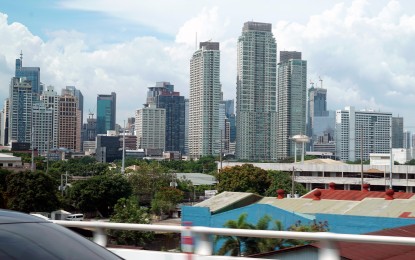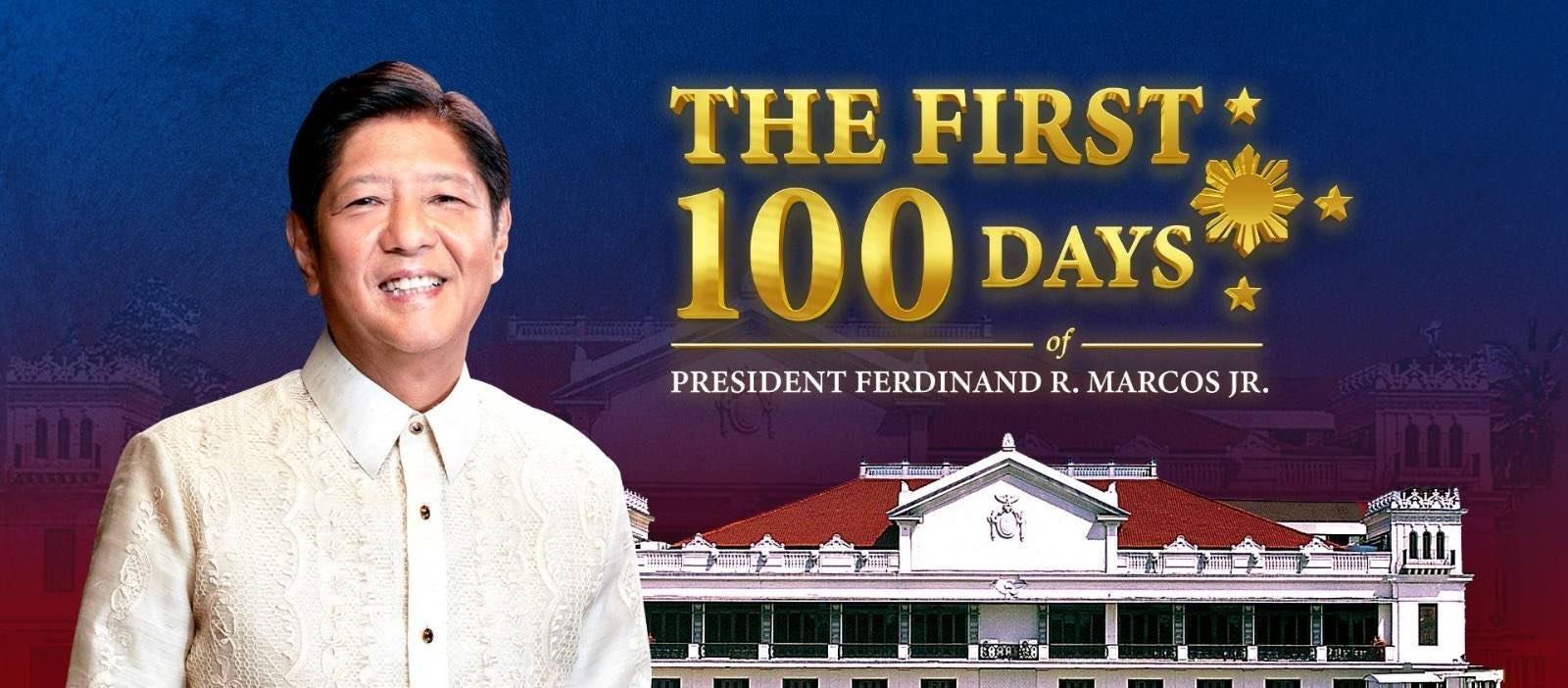
MANILA – Over three months into his term, President Ferdinand “Bongbong” Marcos Jr. has repeatedly expressed his desire to “transform” the Philippine post-pandemic economy into one that is even more robust and resilient than it was prior to the global health crisis.
The Department of Budget and Management (DBM), taking its cue from the President, has so far carried out efforts to “reduce socioeconomic vulnerability and mitigate scarring from the pandemic.”
It has also “ensured sound macroeconomic fundamentals” through sound fiscal management and improved bureaucratic efficiency.
Rather than just addressing the economic scarring arising from Covid-19, Marcos said he also wanted the country’s economy to be prepared for future shocks.
2022-2028 medium-term fiscal framework
To set the tone of the Marcos administration’s game plan for the next six years, the Development Budget Coordination Committee (DBCC), an inter-agency body made up of the DBM, Department of Finance, National Economic and Development Authority and Bangko Sentral ng Pilipinas, presented the 2022-2028 medium-term fiscal framework (MTFF) in July.
Marcos, in his first State of the Nation Address (SONA) on July 25, said the framework seeks to attain short-term macro-fiscal stability while remaining supportive of the country’s economic recovery and to promote medium-term fiscal sustainability.
The MTFF serves as an “anchor” for the annual spending and financing plan of the national government and for Congress when preparing the annual budget.
Among the targets set under the framework is for the economy to expand by 6.5 percent to 7.5 percent in 2022.
It also aims to create more quality jobs and reduce poverty incidence by steering the economy back to its high-growth path in the near term and sustaining inclusive and resilient growth over the medium term.
To date, both the House of Representatives and Senate have adopted a resolution supporting the MTFF. The MTFF must be reviewed and updated after three years or in 2025.
Budget Modernization Bill
The DBM and the DOF, Bureau of Treasury, and Commission on Audit, continue to advocate for the passage of the Budget Modernization Bill, which seeks to institutionalize the cash-based budgeting system (CBS) to strengthen fiscal discipline in the allocation and use of budget resources.
Marcos, in his SONA message, said the CBS would strengthen fiscal discipline in the allocation and use of budget resources by ensuring that every peso budgeted by the government would lead to the actual delivery of programs and projects.
The Budget Modernization Bill seeks to strengthen the government’s accountability to the people by improving the ability of the government to deliver direct, immediate, and substantial services to the people.
Currently, the DBM is in close coordination with Public Financial Management Committee member agencies and the Presidential Legislative Liaison Office for the finalization of the administrative version of the bill and shepherding the legislative measure for its passage in the 19th Congress.
DBM Secretary Amenah Pangandaman said the CBS is expected to address bottlenecks in obligations, which is expected to lead to on-time implementation and disbursement of the government’s programmed projects and provide for better planning of government agencies leading to higher utilization rates and improved public service delivery.
The CBS is expected to be fully implemented for the whole government by 2025.
Proposed 2023 budget
The DBM submitted the proposed PHP5.268-trillion national budget for 2023 to the Executive Secretary on Aug. 18 for the President’s consideration.
The proposed budget “fleshes out the priorities enunciated by the President in his 8-point socio-economic agenda, which is in line with the medium-term fiscal framework.”
On Aug. 22, the DBM submitted the proposed budget and the President’s Budget Message to Congress.
In his budget message, Marcos urged Congress to waste no time in passing the proposed budget, citing its importance in helping the nation attain economic transformation, growth, and sustainability.
“The formula for prosperity is simple: Increase productivity with the overriding commitment to leave no Filipino behind, including Filipinos of the next generation. Let us not waste more time in turning this dream into a reality,” he said.
The House of Representatives passed the annual spending plan on the third and final reading on Sept. 28.
Once they craft their own version of the 2023 General Appropriations Bill (GAB), the Senate will meet their House counterparts in a bicameral conference committee to reconcile differing provisions in their respective budget bills.
Their harmonized measures would be placed on the President’s signature by December if not earlier.
The DBM also included in the general provision of the proposed 2023 budget “mainstreaming green practices” which refers to the holistic process of environmental stewardship through micro-level changes in organizations.
“All national government agencies, local government units, state universities and colleges, and government-owned and controlled corporations shall, as much as possible, institute practices that promote the protection and conservation of the environment,” the provision read.
Realignment of expenditure priorities
On Aug. 16, the DBM extended the deadline for submission of requests for financial assistance chargeable against the fiscal year (FY) 2022 Local Government Support Fund-Financial Assistance to LGUs and Support for Capital Outlays and Social Programs and allowed LGUs affected by calamities or disasters that occurred in CY 2022 to submit their requirements for assistance.
Calamity or disaster-affected LGUs must prioritize programs and/or projects that are related to disaster response, rehabilitation, and recovery.
Tech implementation
As part of efforts to digitize government processes, the DBM has met with various information technology (IT) partners for possible collaboration on cloud transformation.
The DBM has also started assessing the current Budget and Treasury Management System in line with its goal of adopting digital transformation.
A draft Terms of Reference has also been drafted by the DBM Information and Communications Technology Group to incorporate an Application Programming Interface Platform in various DBM application systems.
Meetings were conducted with various IT providers for a possible conduct of a technology exposition.
The DBM has also developed its Government Procurement Policy Board (GPPB) Online Portal to add new features to make procurement more efficient and transparent even after the effectivity of the Bayanihan laws.
Pangandaman earlier said digitalization as well as the proposed national government rightsizing program and cash-budgeting system would enhance bureaucratic efficiency to “ensure quick and responsive public service delivery to the Filipino people.”
On full devolution
The DBM continues to uphold Executive Order No. 138, which provides for the implementation of the full devolution of certain national government functions to the LGUs before the end of 2024.
The DBM, however, proposed an extension of the current full devolution period from the initial period of FY 2022-2024 to an extended period of FY 2025-2027.
The Committee on Devolution (ComDev), chaired by the DBM, continues to hold meetings to discuss the latest initiatives and strategies of various government agencies and leagues in line with the full devolution.
In July this year, the DBM released the PHP1.25 billion Local Government Support Fund – Growth Equity Fund (LGSF-GEF) to beneficiary provinces, cities, municipalities, and barangays in geographically isolated and disadvantaged areas.
The DBM has received 18 Devolution Transition Plans (DTPs) out of the 20 that are expected from national government agencies concerned as of Sept. 15.
Of the 18 NGA DTPs submitted, two have been approved — the Department of Health and Commission on Population and Development. (PNA)

